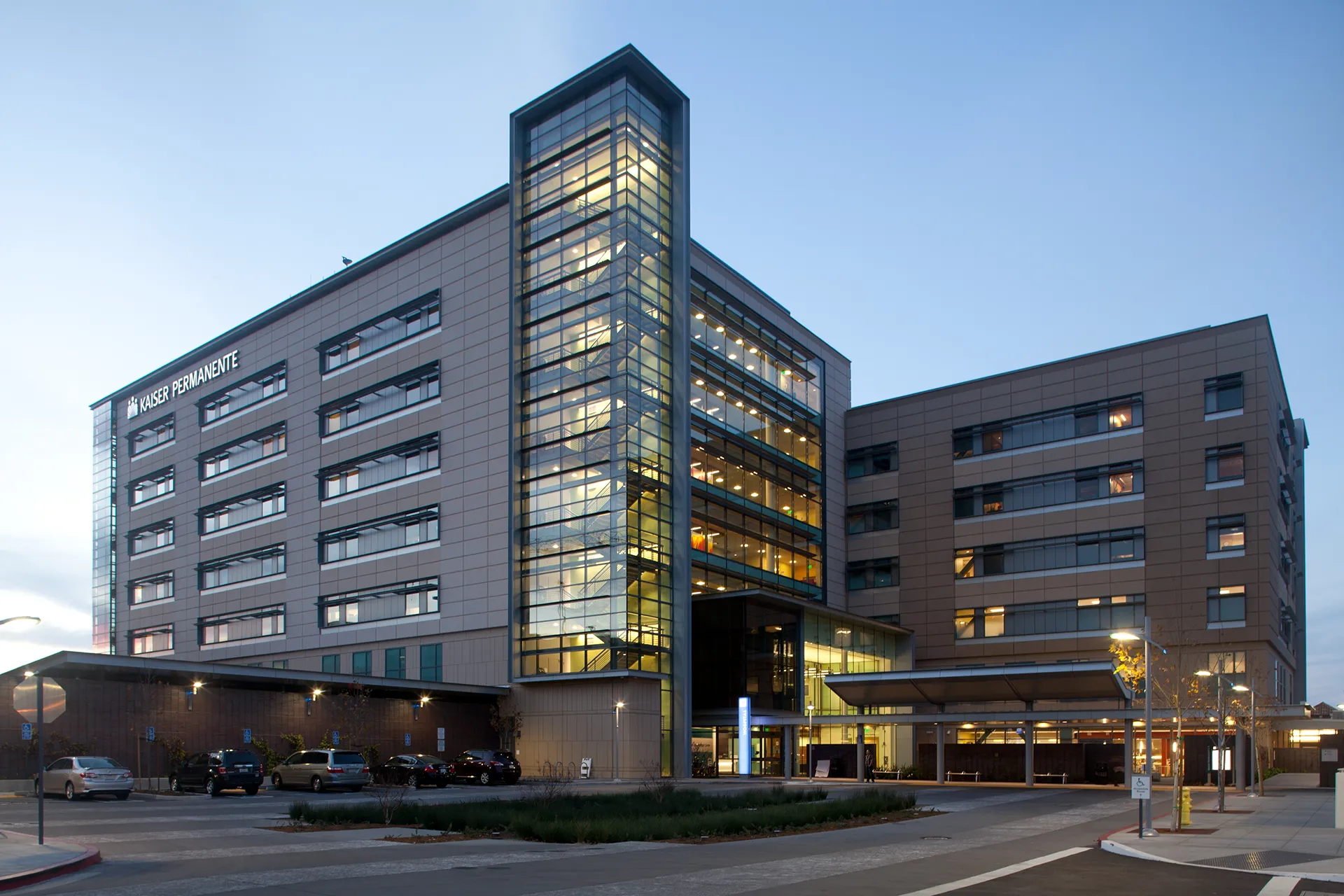Psychology Practicum Extern – Redwood City

Redwood City lies on a peninsula on the northern edge of Silicon Valley, approximately 25 miles south of San Francisco and 6 miles north of Stanford University. A center of high-tech industry, Redwood City is home to several global technology companies including Oracle, Electronic Arts (EA), and Evernote. Redwood City enjoys a mild Mediterranean climate, moderated by the effects of the San Francisco Bay to the east and the Pacific Ocean over the coastal range to the west. It is the third largest city in the County of San Mateo, with 86,000 residents. Incorporated in 1867, Redwood City is home to the San Mateo County History Museum, and the only active deep-water port within the south bay of San Francisco. For outdoor enthusiasts, the nearby Edgewood Park and Natural Preserve provides miles of hiking trails and site seeing opportunities.
The new Kaiser Redwood City Medical Center opened in 2014. It a regional center for neurological care and surgery. The patient population falls along a broad ethnic, cultural, and socioeconomic spectrum and includes Medi-Cal enrollees who are part of the San Mateo County Partnership. All age groups and mental health conditions are represented in our Psychiatry Department.
Program Curriculum
Equity, Inclusion & Diversity
We are committed to nurturing and integrating diversity training into all aspects of our training program by:
Providing interns with opportunities to work with patients who represent various aspects of diversity, including age, religion, gender, disability status, socioeconomic status, ethnicity, values, and lifestyle.
Placing a high value on interns’ willingness to engage in self-reflection, and supporting the exploration of attitudes, beliefs and therapeutic postures that could impact clinical interactions.
Maintaining a consistent focus in clinical supervision on expanding interns’ multicultural awareness and competence in the provision of psychotherapeutic services and cultivating a sense of inclusion and belonging in the workplace.
Encouraging interns to participate in the Regional Mental Health Training Program Equity, Inclusion, and Diversity Committee’s seminars related to cultural sensitivity and competence as their schedule permits.
Didactic Training
Regularly scheduled weekly didactic seminars are now organized and administered at the regional level for KP NorCal trainees. Doctoral externs are required to attend the one-hour weekly seminar. Diversity issues are always integrated into seminar presentations.
Our Regional Mental Health Training Program also sponsors training courses for continuing professional development. These courses and presentations are offered at select times during the year for all KP mental health trainees and staff at Kaiser Northern California Medical Centers. We bring in national experts and keynote speakers on a variety of cutting-edge topics in mental health treatment and research. Externs are required to attend these monthly regional trainings as their schedule permits. Training course dates and a list of speakers and topics can be found on the Regional Mental Health Training Programs website. In addition, many of these lectures are recorded and available under the continuing education lecture library.
Seminars and Meetings
Practicum externs are invited to participate in multidisciplinary team meetings as it pertains to their rotations and clinical work. Bilingual Spanish-speaking externs are invited to participate in our weekly La Clinica meeting that involves case consultation and support around working with our Latinx families.
Telehealth Training:
Kaiser Permanente has greatly expanded its’ virtual presence, which will allow residents to fully train and practice in a variety of trailblazing platforms in telemedicine to provide accessible mental health care.
Supervision
Each practicum extern is supervised by a licensed psychologist who meets with the extern for one hour a week in individual face-to-face supervision. This supervisor takes the lead role in developing the extern’s learning plan and schedule, supervising their clinical work, and helping them navigating the KP mental health system. This supervisor additionally is responsible for completing the extern’s evaluation after gathering input from other staff members who have worked with the extern. At some practicum training sites, externs may receive supplemental individual supervision from Psychology Postdoctoral Residents.
Practicum externs also receive 1 hour of group supervision per week for case presentation and consultation. Depending on the training site, externs may also participate in group supervision for psychological testing/ADHD assessment and in a cultural conversation/diversity seminar. Group supervision allows for vicarious learning and modeling as well as giving and receiving feedback. These experiences help the extern to develop both the collegial and supervisory aspects of their professional identity.
Psychological Assessment
Psychological Assessment is not a guaranteed opportunity within our practicum program. Depending on extern interest, motivation, and clinic need, there may be some assessment opportunities during the training year through our ADHD evaluation clinic.
Tracks and Rotations
Child and Adolescent Psychiatry
As part of this track, practicum externs will carry a caseload of child and adolescent patients ranging in age from 6 to 18 years old. They will evaluate and diagnose a range of mental health conditions based on DSM-5 and ICD-10 criteria, develop treatment plans, and learn how to articulate those plans to patients and their families. Externs will deliver evidence based individual and family interventions within a feedback informed care model that includes the use of outcomes monitoring. Training in evidence-based group therapy will consist of co-facilitating groups and classes under the supervision of licensed therapists. Externs will also assess clinical crises and apply risk management interventions as needed.
Schedule
- Direct Patient Care (Individual/Group): 14-17 hours
- Non-Patient Care: 3-4 hours
- Individual Supervision: 1 hour
- Group Supervision: 1 hour
- Didactic Training: 2 hours
Program Graduates
2022-2023 Cohort
| Graduate | University/Institute | Track/Specialty Rotation | Current Position, Specialty & Location |
|---|---|---|---|
| toral Practicum Program Sophia Siciliano | PGSP-Stanford PsyD Consortium | Child and Adolescent Psychiatry | Advanced Practicum Student Behavioral Emergency Response Team and Consult Liaison Services Division of Behavioral Health UCSF Benioff Children’s Hospital Oakland |
| Irene Thomas | Palo Alto University | Child and Adolescent Psychiatry | Advanced Practicum Student UCSF Benioff Children’s Hospital Oakland |
